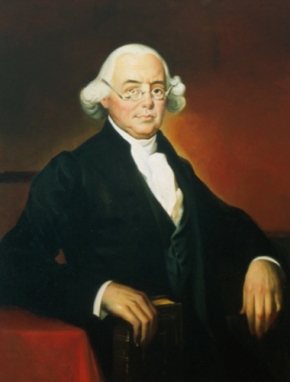You are here
Circuit Court Opinions:
Associate Justice James Wilson, United States v. Ravara (1793)

United States v. Ravara, 2 U.S. 297 (C.C.D. Pa. 1793) [Middle Circuit]
Joseph Ravara was a consul from Genoa (then an independent republic) who was charged with a misdemeanor for sending anonymous threatening letters to several individuals in an attempt to extort money. At his arraignment in the U.S. circuit court, his attorneys moved to have the indictment quashed on the ground that only the Supreme Court of the United States had jurisdiction over the case.
Article III, section 2 of the Constitution provided that “In all Cases involving Ambassadors, other public Ministers and Consuls, and those in which a State shall be a Party, the supreme Court shall have original jurisdiction.” According to Ravara’s attorneys, “original” in this context meant “exclusive,” such that no inferior courts could be vested with these forms of jurisdiction. District Attorney William Rawle countered that the Article III provision applied only to civil suits and that the case was governed by the Judiciary Act of 1789, which gave the U.S. circuit courts exclusive jurisdiction “of all crimes and offences cognizable under the authority of the United States” except where otherwise provided by law.
By a vote of 2–1, the circuit court agreed with Rawle’s position and sustained the indictment. Justice Wilson, joined by U.S. District Judge Richard Peters, concluded that the Constitution’s grant to the Supreme Court of original jurisdiction over certain cases did not preclude Congress from vesting concurrent jurisdiction over those cases in inferior courts, as it had done in the act of 1789. Justice James Iredell dissented, asserting that the Constitution was meant to give the Supreme Court exclusive jurisdiction, as a policy matter, over all cases involving officials of foreign governments. In 1884, in Ames v. Kansas, the Supreme Court ruled in favor of the position advanced by Wilson and Peters.
Ravara was tried and convicted by a jury after arguing unsuccessfully that the crime with which he was charged was not cognizable at common law and that he should enjoy diplomatic immunity. Soon after the conviction, Ravara received a pardon from President George Washington. The Ravara case demonstrated that early circuit court decisions could fill gaps in areas of constitutional interpretation where the Supreme Court had not yet ruled.
